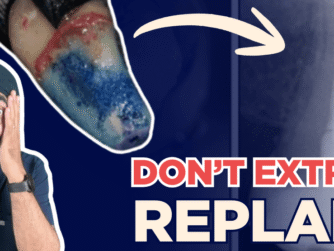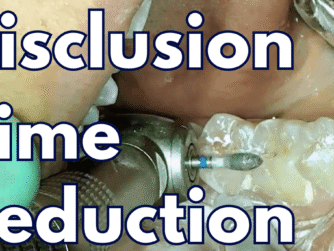Podcast: Play in new window | Download (Duration: 35:43 — 51.5MB)
Subscribe: RSS
Dental Implant courses for Dentists are a significant pathway in terms of commitment. Have you ever attended a Dental course and not applied the knowledge…and then a few months or years later – you felt it was an absolute waste?
For example, I did a laser course last year – I have hardly touched a laser since then – its my own fault and I take ownership of that…but what if the stakes were higher?
Implant courses are not a small investment and I know some Dentists who have invested heavily in implant training…but they never quite got going. Whatever the reason, it’s sad.
This is why I recorded with Implant Dentist Dr Hassan Maghaireh who is going to help us over 2 episodes to cover this mammoth topic. In this episode we look at getting started with implants – is it for you?
Stay tuned for a very clinical Part 2 where we will discuss case selection, implant assessment and Ridge preservation for Dentists. This two-part series aims to help you even if you are not placing or restoring implants, we’re going to cover the fundamentals and scratch in itch we have all had since qualifying from Dental school with limited exposure to Implants!
In this Episode, I asked Hassan:
- As you do not get to place or restore implants at Dental school, how can you know it is the right path for you?
- I know many young Dentists who dabbled with implants and then stopped placing implants – how can we ensure this does not happen to more dentists?
- There is a school of thought suggesting that with implants, you should either go all in, or do not touch them. How and where does the GDP fit in to this? Is there a place for ‘dabbling’ in implants?
- How can we start safely and positively?
In this episode we promised you some downloads and resources:
The ADI Whitepaper on Bisphosphonates
The BAIRD Implant Course starting in October 2021
Wex for Refurbished Photography Equipment
If you enjoyed this episode, you will also like Transition to Private Dentistry which changed my life.







